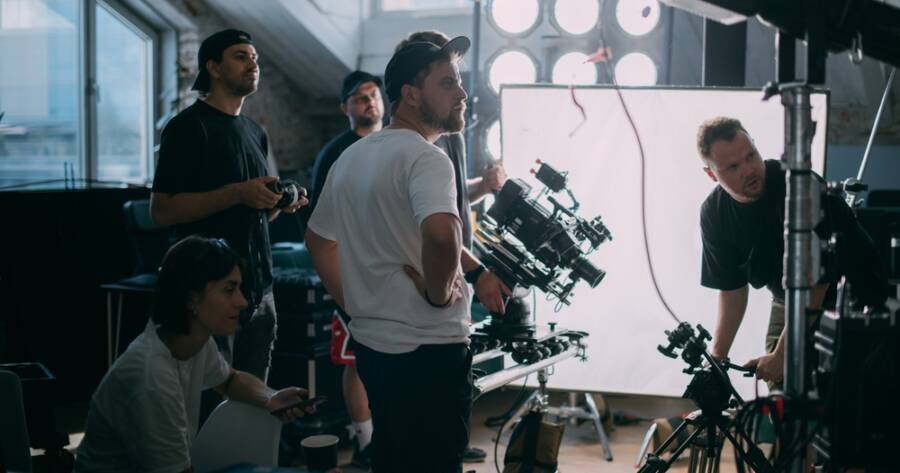Cinematography is a vital part of filmmaking, bringing stories to life through visual composition, lighting, and camera work. Cinematographers play a crucial role in shaping a film’s aesthetic, working closely with directors to achieve the desired mood and atmosphere. If you have a passion for visual storytelling and camera work, a career in cinematography can be both exciting and rewarding.
Types of Cinematography Jobs
Cinematography offers a variety of career paths, ranging from independent filmmaking to Hollywood productions, television, and commercial work. Below are some of the key roles in this field.
1. Director of Photography (DP or DOP)
- The head cinematographer responsible for a film’s overall visual style.
- Works closely with the director to determine lighting, framing, and camera movement.
- Supervises the camera crew and lighting team.
- Makes creative and technical decisions to enhance the storytelling.
2. Camera Operator
- Operates the primary camera on set, capturing the planned shots.
- Follows instructions from the Director of Photography (DP).
- Ensures smooth camera movements using equipment like Steadicams, dollies, and drones.
3. Gaffer (Lighting Technician)
- Head of the lighting department, responsible for setting up lights according to the DP’s vision.
- Works with electricians and grip teams to create the right mood and exposure.
- Uses a variety of lighting equipment, including softboxes, LED panels, and reflectors.
4. Key Grip
- Handles all non-electrical lighting equipment like tripods, rigs, cranes, and dollies.
- Works with the DP and gaffer to ensure proper camera positioning and movement.
5. Focus Puller (1st Assistant Camera – 1st AC)
- Ensures that every shot remains sharp and in focus.
- Adjusts the camera’s focus manually during filming, especially for complex moving shots.
6. Drone Operator
- Captures aerial footage using drones.
- Works with the DP to get cinematic overhead and tracking shots.
7. Colorist
- Edits and enhances the final look of the film through color grading.
- Works in post-production using software like DaVinci Resolve, Adobe Premiere, and Final Cut Pro.
Skills Needed for Cinematography Jobs
To succeed in cinematography, you need a mix of technical expertise and creative vision. Here are some essential skills:
- Camera Operation – Knowledge of different camera types, lenses, and settings.
- Lighting Techniques – Understanding natural and artificial lighting for different moods.
- Composition & Framing – Ability to frame shots that are visually compelling.
- Focus & Depth of Field – Managing sharpness, focus pulling, and depth of field.
- Post-Production Basics – Familiarity with color correction and grading.
- Attention to Detail – Small changes in lighting or camera angles can greatly impact a scene.
How to Get Started in Cinematography
1. Get a Film Education
- Many cinematographers study at film schools or take online cinematography courses.
- Programs like those at NYU Tisch, USC, and the American Film Institute (AFI) are highly regarded.
2. Start with Entry-Level Roles
- Work as a production assistant, camera assistant, or lighting assistant to gain experience.
- Offer to shoot student films, indie projects, or commercials to build a portfolio.
3. Build a Showreel
- A cinematography reel showcases your best work to potential employers.
- Include a variety of shots demonstrating lighting, framing, and camera movement.
4. Network in the Industry
- Join film industry groups and online communities.
- Attend film festivals, workshops, and networking events.
- Connect with directors, producers, and other cinematographers.
5. Stay Updated on Technology
- Learn to use the latest cameras, lighting techniques, and editing software.
- Stay informed about industry trends and advancements in digital cinematography.
A Rewarding Career in Visual Storytelling
Cinematography is a dynamic and creative field, offering opportunities to work in film, television, commercials, and online content. Whether you aspire to be a Director of Photography, Camera Operator, or Lighting Technician, mastering the right technical and artistic skills is essential.
By gaining experience, networking, and constantly improving your craft, you can build a successful career in cinematography and bring stories to life through stunning visuals.

